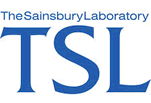Dr F Menke, Prof N Talbot
No more applications being accepted
Funded PhD Project (European/UK Students Only)
About the Project
Plants are constantly exposed to microbial signals and need to decode and integrate these signals with signaling processes controlling growth. Plants sense microbial pathogens through the detection of pathogen associated molecular patterns (PAMP) and this is mediated by cell surface localized pattern recognition receptors (PRR). Perception of PAMPs triggers a signaling network that includes activation of mitogen activated protein kinases (MAPK), activation of defense gene expression and ultimately leads to PAMP triggered immunity (1). Perception of PAMPs also leads to growth inhibition, by mostly unknown signaling events. Since the regulation of growth also involves receptor-mediated perception of plant peptides there is potential for cross regulation. Some connections have already been identified that suggest some of the signaling components are shared between PRR signaling and plant peptide signaling, such as co-receptor BAK1 (2). Furthermore, perception of plant peptides has recently also been linked to negative regulation of defense response and suppresses resistance to microbial pathogens (3,4). The current project investigates the links between PRR signaling and plant peptide signaling controlling growth. In the current project the receptor based signaling event will be studied with advanced proteomics approaches and cell biology (using confocal microscopy). Project will also involve molecular biology and protein biochemistry allowing for a broad training of the candidate. Further information can be found at http://www.tsl.ac.uk/groups/proteomics/ or by contacting [Email Address Removed].
References: (1) Mithoe and Menke (2018) COPB (2) Ladwig et al., (2015) Plant Cell 27; 1718-29 (3) Igarashi et al., (2012) Plant J 71, 194-204. (4) Mosher et al., (2013) Plant J 73, 469-482.
This project has been shortlisted for funding by the Norwich Biosciences Doctoral Training Partnership (NRPDTP). Shortlisted applicants will be interviewed on either the 7th, 8th or 9th January 2020.
The NRPDTP offers postgraduates the opportunity to undertake a 4-year research project whilst enhancing professional development and research skills through a comprehensive training programme. You will join a vibrant community of world-leading researchers. All NRPDTP students undertake a three-month professional internship (PIPS) during their study. The internship offers exciting and invaluable work experience designed to enhance professional development. Full support and advice will be provided by our Professional Internship team. Students with, or expecting to attain, at least an upper second class honours degree, or equivalent, are invited to apply.
For further information and to apply, please visit our website: https://biodtp.norwichresearchpark.ac.uk/
Funding Notes
In general, funding is available to UK and EU nationals who have established UK or EU residency. For funding eligibility guidance, visit our website: https://biodtp.norwichresearchpark.ac.uk/how-to-apply/. Full Studentships cover a stipend (2019/0 rate: £15,009pa), research costs and tuition fees at UK/EU rate and are available to candidates who meet the UK residency requirements.
EU nationals who do not meet the UK residency requirements may be eligible for a fees-only award. Students in receipt of a fees-only award will be eligible for a maintenance stipend awarded by the NRPDTP Biosciences Doctoral Scholarships. To be eligible students must meet the EU residency requirements.

 Continue with Facebook
Continue with Facebook

